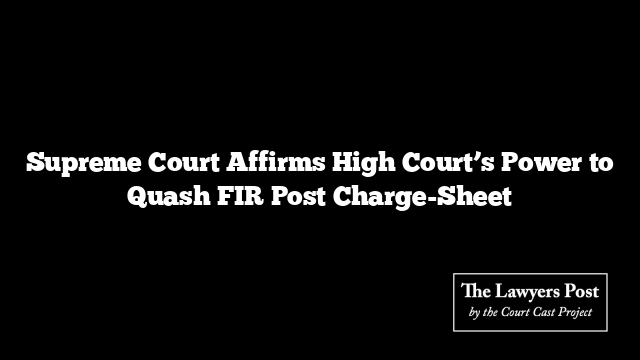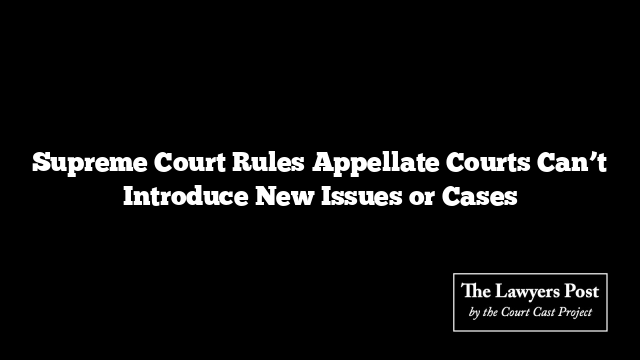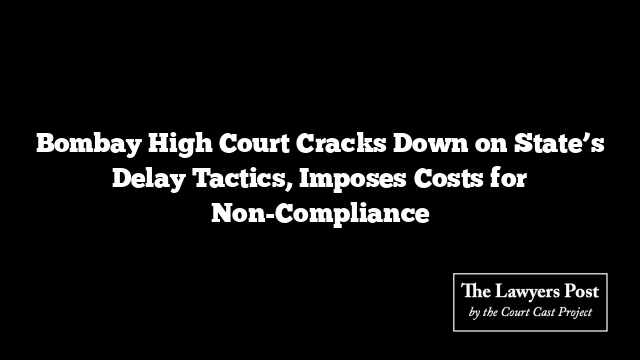In a significant ruling, the Supreme Court affirmed on August 28 that a High Court can indeed quash an FIR even after a charge-sheet has been filed, provided it’s clear that continuing with the case would amount to an abuse of legal process. This authority is enshrined under Section 482 of the Criminal Procedure Code (CrPC).
The Court emphasized that the High Court retains the discretion to dismiss an FIR if it determines that neither the FIR nor the charge-sheet, when considered together, reveal any actual offense or if proceeding would unfairly misuse the court’s resources, taking into account the unique circumstances of the case.
In this particular matter, Justices Dipankar Datta and Ujjal Bhuyan overturned a Gujarat High Court decision that had previously denied the quashing of an FIR and charge-sheet against the parents-in-law and husband of a complainant in a cruelty case under Section 498A of the IPC.
The complainant had initially filed the FIR in 2002, and by 2004, had obtained a mutual divorce from her husband. Despite this, the Gujarat High Court had dismissed earlier quashing attempts in 2011, citing the charge-sheet as sufficient grounds to proceed.
Upon appeal to the Supreme Court, it was noted that the complainant, despite being notified in May 2023, failed to appear and contest the appeal. The Court observed that both parties had moved on with their lives since the divorce and that the complainant’s non-participation indicated a lack of intent to revive past grievances.
The Supreme Court criticized the FIR’s vague allegations and questioned whether a trial was warranted given the lack of concrete evidence. Referencing precedents, including the case of Abhishek v. State of Madhya Pradesh, the Court reinforced the High Court’s power to quash an FIR under Section 482 of the CrPC.
In conclusion, the Supreme Court utilized its powers under Article 142 of the Constitution to dismiss the FIR, charge-sheet, and all related proceedings, effectively resolving the protracted legal conflict.





